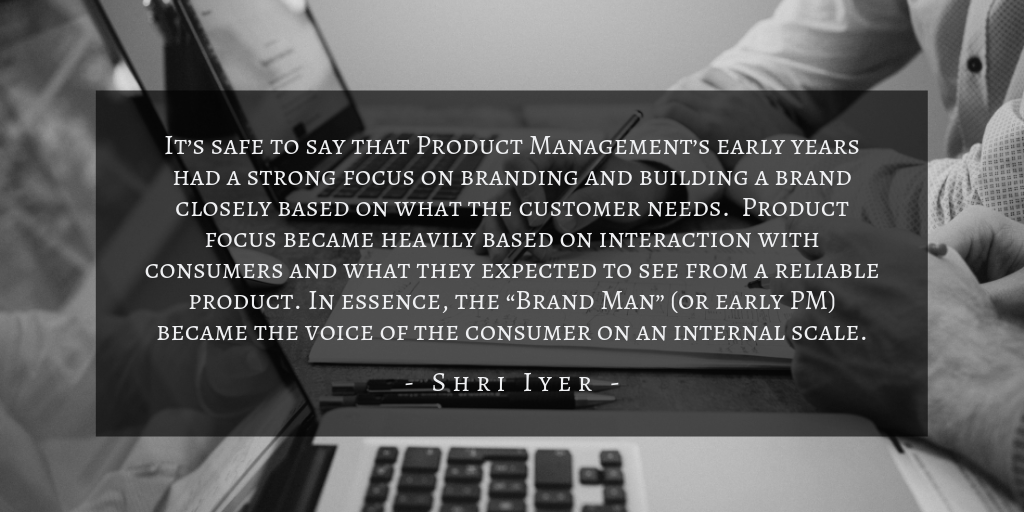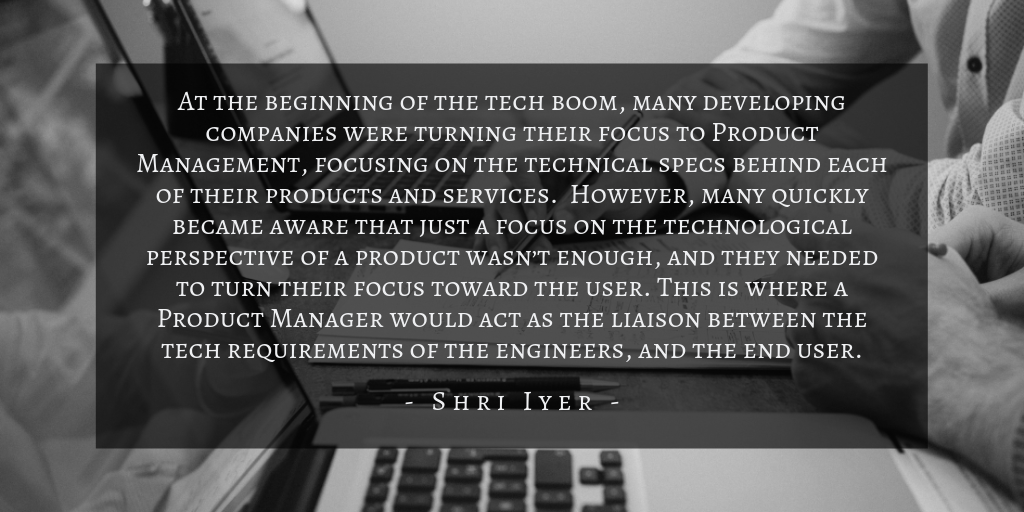Throughout this blog, we’ve covered an in-depth outline of what Product Management is, and the career path you can embark on once you’ve gotten into a PM role. The PM field can be extremely lucrative, and provide you with a variety of different skills and experiences as a professional; but where did the role of a PM begin?
Every career path has a beginning. A time when a position was first developed and eventually cultivated into a full career with a place in countless business and industries. Now that we’ve discussed the background of Product Management, and where the PM career path can take you, we want to take a look back in time, and dive into the history of Product Management. One thing that’s important to note is that the role of a PM is purely evolutionary, and has gone through major changes since it’s early development.
History
What we know today as Product Management was initially started in a 1931 memo by Procter & Gamble employee, Neil H. McElroy. While the memo wasn’t about Product Management, specifically, it explained the need to hire more employees that focused on brand management. McElroy mentioned in his memo, the need for “Brand Men” who would take on the role of managing products, advertising, and promotions, while tracking sales (sounds like a familiar job description, doesn’t it?).

It’s safe to say that Product Management’s early years had a strong focus on branding and building a brand closely based on what the customer needs. Product focus became heavily based on interaction with consumers and what they expected to see from a reliable product. In essence, the “Brand Man” (or early PM) became the voice of the consumer on an internal scale.
Rafayel Mkrtchyan describes a PM as “the visionary of the product and the customer-facing person who decides what to build and most importantly, why to build it.” A true description of the role of a PM.
McElroy continued to pave the way for the PM role when he became a valued influencer for young entrepreneurs, Bill Hewlett and David Packard (sound familiar?), who eventually founded the international IT company Hewlett-Packard (HP), and ultimately took Product Management to a new level.
HP and Product Management go together hand in hand, as Bill and Dave took what they knew about branding and customer interaction and directly applied it to the way the company made decisions on products and development. In fact, HP’s internal structure was based on focused product groups that directly worked on the development, manufacturing, and sales of each product group.
With the early developments of the PM role, more and more companies and industries began to focus their efforts on making their brand, products and, services, relative to the consumer, and what they knew would sell. By the ’60s, new brands were emerging across multiple industries, and their consumers were getting better at choosing the good from the bad. With that, brand managers needed to focus on quality, but also their marketing and advertising efforts. Something that, a modern PM of today would be overseeing regularly.

As time went on, more and more companies developed PM roles and directed their focus to creating products that were well suited for their consumers. As the tech industry began to rise, so did the concept of Product Management roles for tech companies. At the beginning of the tech boom, many developing companies were turning their focus to Product Management, focusing on the technical specs behind each of their products and services. However, many quickly became aware that just a focus on the technological perspective of a product wasn’t enough, and they needed to turn their focus toward the user. This is where a Product Manager would act as the liaison between the tech requirements of the engineers, and the end user.
By Y2K, the role of a PM became much more predominant in the tech world, as well as many other industries, than it ever had been before. While today, not all companies have a specific PM role, many are beginning to see Product Management as an absolute necessity and a key component of the success of a company, and it’s overall product development.

